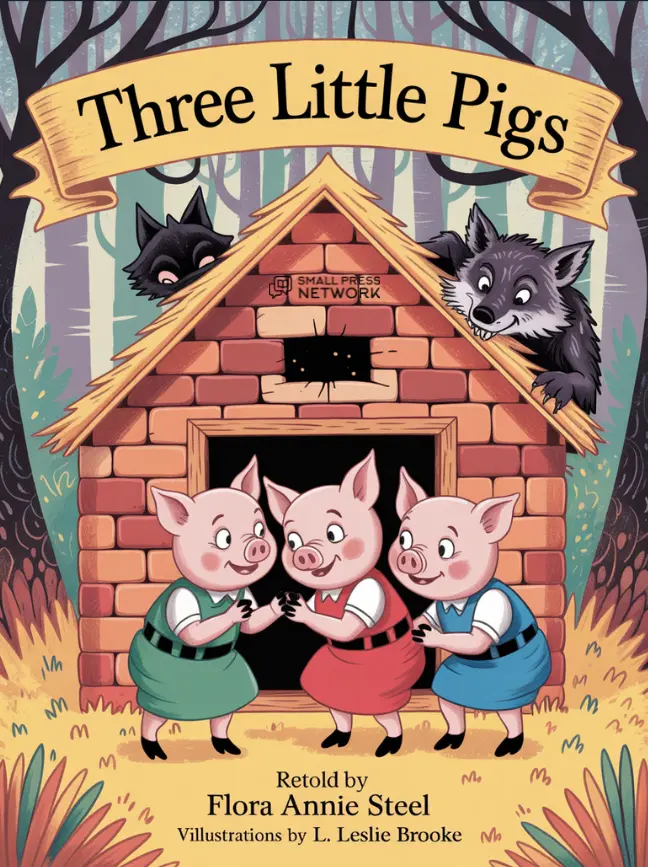30
Chapter X
Prince Vasíli kept the promise he had given to Princess Drubetskáya who had spoken to him on behalf of her only son Borís on the evening of Anna Pávlovna’s soiree. The matter was mentioned to the Emperor, an exception made, and Borís transferred into the regiment of Semënov Guards with the rank of cornet. He received, however, no appointment to Kutúzov’s staff despite all Anna Mikháylovna’s endeavors and entreaties. Soon after Anna Pávlovna’s reception Anna Mikháylovna returned to Moscow and went straight to her rich relations, the Rostóvs, with whom she stayed when in the town and where her darling Bóry, who had only just entered a regiment of the line and was being at once transferred to the Guards as a cornet, had been educated from childhood and lived for years at a time. The Guards had already left Petersburg on the tenth of August, and her son, who had remained in Moscow for his equipment, was to join them on the march to Radzivílov.
It was St. Natalia’s day and the name day of two of the Rostóvs—the mother and the youngest daughter—both named Nataly. Ever since the morning, carriages with six horses had been coming and going continually, bringing visitors to the Countess Rostóva’s big house on the Povarskáya, so well known to all Moscow. The countess herself and her handsome eldest daughter were in the drawing room with the visitors who came to congratulate, and who constantly succeeded one another in relays.
The countess was a woman of about forty-five, with a thin Oriental type of face, evidently worn out with childbearing—she had had twelve. A languor of motion and speech, resulting from weakness, gave her a distinguished air which inspired respect. Princess Anna Mikháylovna Drubetskáya, who as a member of the household was also seated in the drawing room, helped to receive and entertain the visitors. The young people were in one of the inner rooms, not considering it necessary to take part in receiving the visitors. The count met the guests and saw them off, inviting them all to dinner.
“I am very, very grateful to you, mon cher,” or “ma chère”—he called everyone without exception and without the slightest variation in his tone, “my dear,” whether they were above or below him in rank—“I thank you for myself and for our two dear ones whose name day we are keeping. But mind you come to dinner or I shall be offended, ma chère! On behalf of the whole family I beg you to come, mon cher!” These words he repeated to everyone without exception or variation, and with the same expression on his full, cheerful, clean-shaven face, the same firm pressure of the hand and the same quick, repeated bows. As soon as he had seen a visitor off he returned to one of those who were still in the drawing room, drew a chair toward him or her, and jauntily spreading out his legs and putting his hands on his knees with the air of a man who enjoys life and knows how to live, he swayed to and fro with dignity, offered surmises about the weather, or touched on questions of health, sometimes in Russian and sometimes in very bad but self-confident French; then again, like a man weary but unflinching in the fulfillment of duty, he rose to see some visitors off and, stroking his scanty gray hairs over his bald patch, also asked them to dinner. Sometimes on his way back from the anteroom he would pass through the conservatory and pantry into the large marble dining hall, where tables were being set out for eighty people; and looking at the footmen, who were bringing in silver and china, moving tables, and unfolding damask table linen, he would call Dmítri Vasílevich, a man of good family and the manager of all his affairs, and while looking with pleasure at the enormous table would say: “Well, Dmítri, you’ll see that things are all as they should be? That’s right! The great thing is the serving, that’s it.” And with a complacent sigh he would return to the drawing room.
31
“Márya Lvóvna Karágina and her daughter!” announced the countess’ gigantic footman in his bass voice, entering the drawing room. The countess reflected a moment and took a pinch from a gold snuffbox with her husband’s portrait on it.
“I’m quite worn out by these callers. However, I’ll see her and no more. She is so affected.
Ask her in,” she said to the footman in a sad voice, as if saying: “Very well, finish me off.”
A tall, stout, and proud-looking woman, with a round-faced smiling daughter, entered the drawing room, their dresses rustling.
“Dear Countess, what an age… She has been laid up, poor child … at the Razumóvski’s ball … and Countess Apráksina … I was so delighted…” came the sounds of animated feminine voices, interrupting one another and mingling with the rustling of dresses and the scraping of chairs. Then one of those conversations began which last out until, at the first pause, the guests rise with a rustle of dresses and say, “I am so delighted… Mamma’s health… and Countess Apráksina…” and then, again rustling, pass into the anteroom, put on cloaks or mantles, and drive away. The conversation was on the chief topic of the day: the illness of the wealthy and celebrated beau of Catherine’s day, Count Bezúkhov, and about his illegitimate son Pierre, the one who had behaved so improperly at Anna Pávlovna’s reception.
“I am so sorry for the poor count,” said the visitor. “He is in such bad health, and now this vexation about his son is enough to kill him!”
“What is that?” asked the countess as if she did not know what the visitor alluded to, though she had already heard about the cause of Count Bezúkhov’s distress some fifteen times.
“That’s what comes of a modern education,” exclaimed the visitor. “It seems that while he was abroad this young man was allowed to do as he liked, now in Petersburg I hear he has been doing such terrible things that he has been expelled by the police.”
“You don’t say so!” replied the countess.
“He chose his friends badly,” interposed Anna Mikháylovna. “Prince Vasíli’s son, he, and a certain Dólokhov have, it is said, been up to heaven only knows what! And they have had to suffer for it. Dólokhov has been degraded to the ranks and Bezúkhov’s son sent back to Moscow. Anatole Kurágin’s father managed somehow to get his son’s affair hushed up, but even he was ordered out of Petersburg.”
“But what have they been up to?” asked the countess.
“They are regular brigands, especially Dólokhov,” replied the visitor. “He is a son of Márya Ivánovna Dólokhova, such a worthy woman, but there, just fancy! Those three got hold of a bear somewhere, put it in a carriage, and set off with it to visit some actresses! The police tried to interfere, and what did the young men do? They tied a policeman and the bear back to back and put the bear into the Moyka Canal. And there was the bear swimming about with the policeman on his back!”
“What a nice figure the policeman must have cut, my dear!” shouted the count, dying with laughter.
“Oh, how dreadful! How can you laugh at it, Count?”
Yet the ladies themselves could not help laughing.
“It was all they could do to rescue the poor man,” continued the visitor. “And to think it is Cyril Vladímirovich Bezúkhov’s son who amuses himself in this sensible manner! And he was said to be so well educated and clever. This is all that his foreign education has done for
32
him! I hope that here in Moscow no one will receive him, in spite of his money. They wanted to introduce him to me, but I quite declined: I have my daughters to consider.”
“Why do you say this young man is so rich?” asked the countess, turning away from the girls, who at once assumed an air of inattention. “His children are all illegitimate. I think Pierre also is illegitimate.”
The visitor made a gesture with her hand.
“I should think he has a score of them.”
Princess Anna Mikháylovna intervened in the conversation, evidently wishing to show her connections and knowledge of what went on in society.
“The fact of the matter is,” said she significantly, and also in a half whisper, “everyone knows Count Cyril’s reputation…. He has lost count of his children, but this Pierre was his favorite.”
“How handsome the old man still was only a year ago!” remarked the countess. “I have never seen a handsomer man.”
“He is very much altered now,” said Anna Mikháylovna. “Well, as I was saying, Prince Vasíli is the next heir through his wife, but the count is very fond of Pierre, looked after his education, and wrote to the Emperor about him; so that in the case of his death—and he is so ill that he may die at any moment, and Dr. Lorrain has come from Petersburg—no one knows who will inherit his immense fortune, Pierre or Prince Vasíli. Forty thousand serfs and millions of rubles! I know it all very well for Prince Vasíli told me himself. Besides, Cyril Vladímirovich is my mother’s second cousin. He’s also my Bóry’s godfather,” she added, as if she attached no importance at all to the fact.
“Prince Vasíli arrived in Moscow yesterday. I hear he has come on some inspection business,” remarked the visitor.
“Yes, but between ourselves,” said the princess, “that is a pretext. The fact is he has come to see Count Cyril Vladímirovich, hearing how ill he is.”
“But do you know, my dear, that was a capital joke,” said the count; and seeing that the elder visitor was not listening, he turned to the young ladies. “I can just imagine what a funny figure that policeman cut!”
And as he waved his arms to impersonate the policeman, his portly form again shook with a deep ringing laugh, the laugh of one who always eats well and, in particular, drinks well. “So do come and dine with us!” he said.





